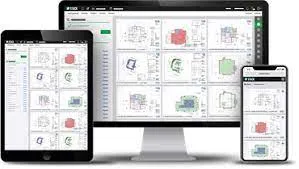How to Estimate Electrical Work Accurately?
Understanding the fundamentals of pricing electrical jobs accurately can help you secure more jobs, increase your profit margins, and expand your business opportunities.
However, when it comes to generating bids, there are plenty of factors to consider, such as materials, labor, and overhead, to establish a profitable pricing approach.
Our guide will offer you a comprehensive overview of how to quote electrical work to optimize your estimating process properly.
1. Review electrical job specifications: When bidding for commercial or construction electrical jobs, you often receive a request for a proposal (RFP) that covers the details and specifications of the job.
Review this document thoroughly to ensure that your electrical pricing aligns precisely with the requirements outlined in the RFP.
If you have any doubts, you can seek clarification before you proceed to the next step.
2. Analyze drawings: Carefully review the pictures, construction drawings, or blueprints to understand the electrical requirements of the jobs. Check for anything that can increase the difficulty of the project or affect the materials or equipment you need.
You need to pay close attention to buildings:
- Elevations
- HVAC
- Plumbing
If the electrical project is for a house and the homeowner cannot provide blueprints or drawings, request a walkthrough to understand the project's requirements.
3. Choose the Right Work to Bid: The key step in the electrical estimation process is selecting the work you bid on. Above all, you should avoid projects where you have limited knowledge about the projects. Due to this, you are more likely to make mistakes during the estimation process while aiming to win the project. Experience and learning matter for electrical estimation when taking up a new project.
If you want to add efficiency and accuracy to your bidding process, then look no further than TurboBid, a trusted estimating software for commercial construction. Visit us today to streamline your estimates, enhance your project management, and elevate your business success!
4. Review Old Projects:
Analyzing past projects can greatly improve the accuracy of project estimates. By studying similar projects, estimators can gain valuable insights into potential cost overruns, including excessive labor or material expenses, and incorporate these findings into their new estimates. You can also take help from historical data to determine typical overhead costs during specific periods. All of these factors contribute to more informed and precise estimations.
5. Consider the location and timeline.
The location and timeline for completing a project can also affect its cost. For instance, projects conducted in distant locations might entail added transportation expenses, and projects with tight deadlines may require increased labor costs.
Conclusion
Estimation is a crucial part of the process of building bids and winning work. However, as an estimator, you should use all data points to determine if the project lies within your work experience and timeline. Estimation is an important part of construction projects as they usually have a large number of parts, which can take much time. If you want to know how construction estimation software can improve your electrical estimation, book a demo with TurboBid and learn how we can help you.
